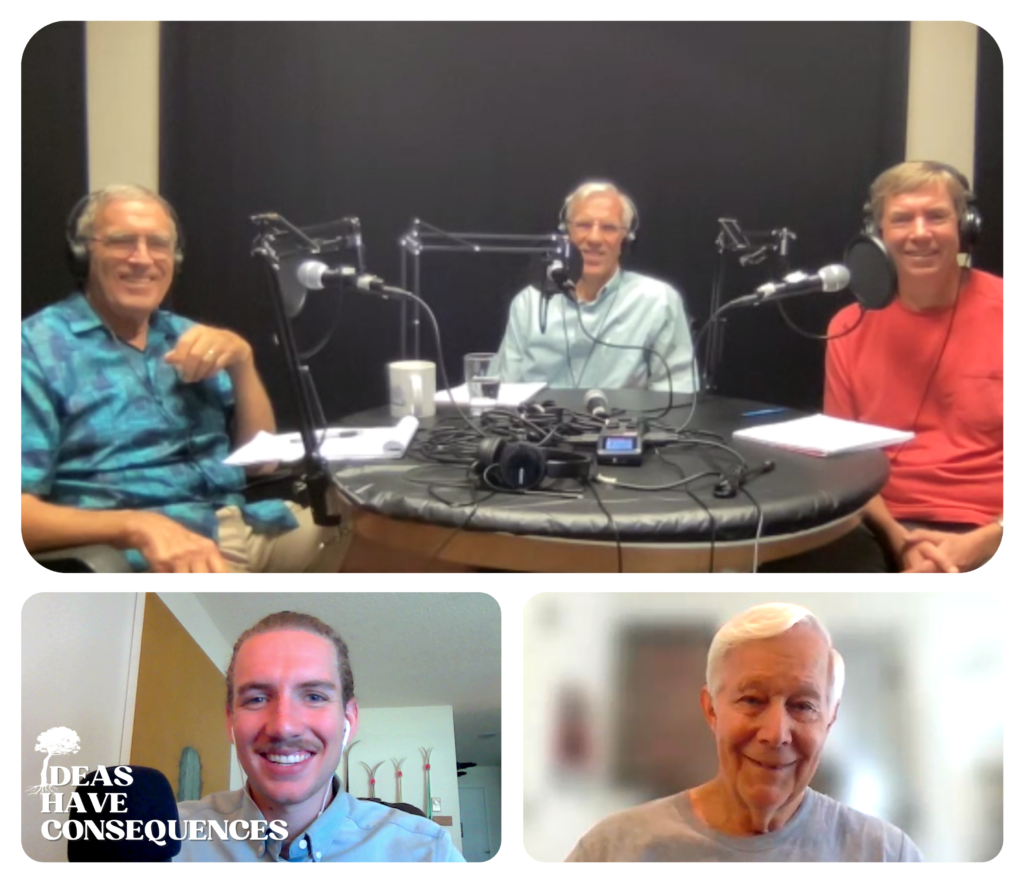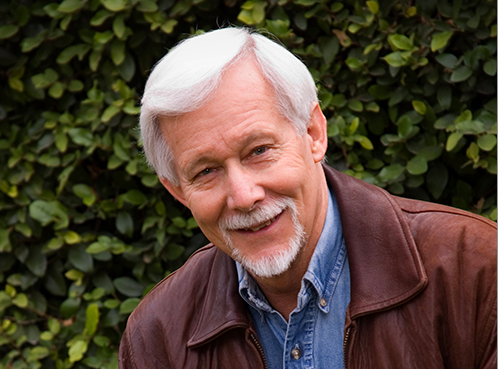At a Glance
The word “love” seems to be everywhere in society—in the news, movies, and social media. Even t-shirts proudly declare “love not hate.” But what does the word “love” really mean? Is it just a fuzzy feeling? How can we love biblically? Special guest Bob Moffitt, co-founder of Disciple Nations Alliance, joins us this week to discuss love and what it means to love truly.

What You'll Hear
Chapter 1: Bob Moffitt (1:16)
- Bob and Darrow met at seminary. Darrow was an answer to Bob’s prayer that he get connected with the ministry Young Life.
- They got into trouble at seminary by asking hard questions about the role of the church in the community.
- They started an outreach to reach troubled kids in the community, but while people thought it was a good idea, no one was willing to set aside time to help out.
- This led to Bob being disillusioned with the church until God reminded him that the church was the Bride of Christ and precious to God.
Chapter 2: Harvest (13:59)
- Bob started another ministry, Harvest, partnering churches in the US with churches in developing countries, to fund them and help with outreach.
- He realized that churches were too dependent on outside funding and were not looking within their own resources for how to give sacrificially. The ministry switched focus to empowering churches to love others through their own local resources.
Chapter 3: What is Love? (23:00)
- The culture says to love others you must first love yourself, but biblical love is the other way around.
- Bob shares how troubled kids gained self-esteem when they got to take care of others.
- Jesus shares the story of the Good Samaritan to demonstrate how to love.
- The purpose of the church is not to evangelize but to disciple, to help people be more like Jesus. Living like Jesus is also the best way to evangelize.
- Love is the mark of a disciple.
- We can’t get so busy doing “good” things that we forget to love.
- Bob has training resources he calls “discipline of love” that can help us love like Jesus.
Chapter 4: Misconceptions about Love (51:11)
- We can love people without liking them. Jesus did not like the Pharisees but he did love them.
- But the practice of love often grows into affection.
- Love is not synonymous with sex.
- There are many different kinds of love.
- Serving and helping others does not lower us.
Chapter 5: Truth and Love (1:09:37)
- There are a lot of lies in the culture, and calling out the lies brings accusations of being unloving.
- But love and truth are closely connected.
- Reality is what it is, not what we want it to be.
- We need to make sure we all have a common understanding of important words, or we will talk past each other.
Using the link above, you can read the transcript, listen along, and adjust the speed of the podcast while you listen.
Discipleship is equipping people to love.
Bob (36:30)
Special Guest
Dr. Bob Moffitt serves as the executive director of the Harvest Foundation which he founded in 1981. Bob maintains a busy travel schedule, training church leaders around the world to carry out Biblical, wholistic ministry. During his doctoral studies (in adult education) from 1992 to 1996, he developed and refined major portions of Harvest’s core training materials.

Go Deeper
Harvest
Faith should touch every area of our lives, but sometimes it is a struggle to see how the Bible could apply to our everyday problems. The Harvest Foundation is a ministry founded by Bob Moffitt to help churches equip Christians to live their lives for Jesus.
The Discipline of Love
By Bob Moffitt
- Loving and sacrificial servanthood is the most important characteristic of God’s image.
- God is a servant, and Jesus modeled that servanthood.
- God does not command service for its own sake, but because it demonstrates and is motivated by His greatest attribute—love.
- The Discipline of Love is a spiritual discipline tool, designed to help followers of Christ practice demonstrating God’s love by serving others.
“The Discipline of Love” is an excerpt from the free course, Kingdomizer 102: Love in Action. Enroll today!
Quotes
“After speaking at dozens of churches, the only people that came out of those churches that were willing to work with these kids were the sort of delinquent kids of some of the pastors. There was nobody–no adults, no pastors. After pouring our hearts out, the middle class Baptist churches that were the foundation of the seminary were frankly too afraid.” Bob (9:29)
“And little by little, my heart grew very cold towards the church… I really don’t like to use the word but it’s true—I detested it. And about five years into this period of alienation, the Lord said to me, ‘Bob, that church that you detest, is my bride. And until you love her with my love, I can’t use you.’” Bob (11:07)
“My passion is to see the church become the church that Christ has called her to be.” Bob (12:58)
“We know that sacrificially loving others is the truth. And unless we can see that as an absolute truth, then when the times get tough, and we feel like, ‘I can’t give anymore. I need this for myself. I need this for my family.’ We find it very difficult, I think, to move beyond the selfish gene, to the sacrificial gene, of saying, “This is what I should do. This is God’s command for me, to be a person who not only is able to sacrificially give, but to be an example, and to challenge others to do the same.’” Bob (21:35)
“Love in our western culture is often talked about in terms of, I have to love myself first before I can love others. I think that’s absolutely wrong. I think it’s absolutely backwards. Love in the other direction is the biblical form of love. No matter how much pain I endure, love is doing something for the benefit, for the advancement, for the growth of others. That’s the first thing.” Bob (24:34)
“Discipleship is equipping people to love.” Bob (36:30)
“And what does disciple mean? It means helping them to know and to be like Jesus. And I think that probably one of the most effective means of evangelism is meeting people who look like Jesus. When you meet Jesus, you’re changed.” Bob (38:15)
“We speak the truth because we love people.” Scott (1:18:27)





I want to say a very big thank you to Bob, I enjoy this podcast. He just teach what true love is.No matter how much pain I endure,love is doing something for the benefit,advancement and growth of other.
Thank you, Ruth. I believe that true love is defined and explained by Jesus. And, you are right. He always acts toward others with the goal of helping them move toward his father’s intentions for them. Bob Moffitt